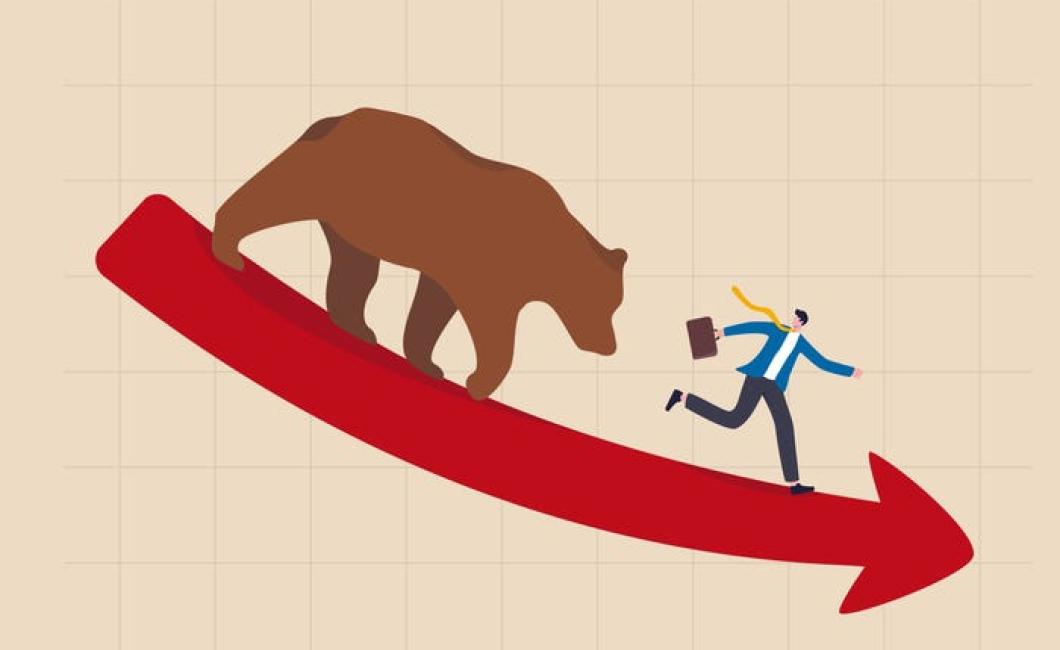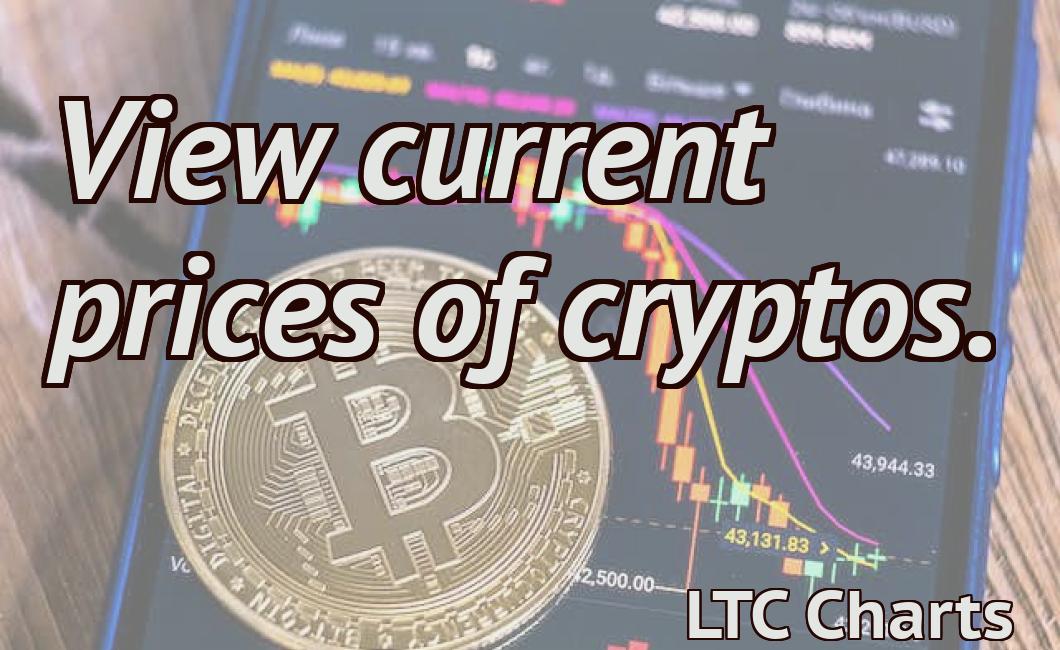Why are cryptocurrency prices different from each exchange?
Different cryptocurrency exchanges offer different prices for Bitcoin and other cryptocurrencies. The reason for this is because each exchange has a different supply and demand for the currency. Some exchanges might have more people buying Bitcoin than others, which drives up the price.
Why are crypto currency prices different from each exchange?
Cryptocurrency prices are different from each exchange because each exchange carries a different mix of coins. For example, Bitfinex is a major cryptocurrency exchange and it typically carries more bitcoin and ethereum than other exchanges. This means that the price of bitcoin or ethereum on Bitfinex may be higher than the price on another exchange.
The reason for the difference in prices of cryptocurrencies on various exchanges
There are a few reasons why cryptocurrencies on different exchanges might have different prices. One reason is that different exchanges might have different levels of liquidity – meaning that they can provide a wider range of prices for cryptocurrencies. Another reason is that some exchanges might have a higher percentage of trading volume in certain cryptocurrencies, which could cause those cryptocurrencies to have a higher price on that exchange.
How do these differences in prices come about for cryptocurrencies?
Cryptocurrencies are not regulated by a government, so their prices are determined by supply and demand. There is a finite number of cryptocurrencies that can be created, and as more people want to buy them, the price goes up.
The effects of these price differences on traders
The difference in prices between the two markets will affect traders in both markets. In the U.S., traders who are buying goods in China will likely be paying a lower price than those who are selling goods in the U.S., since Chinese goods are usually cheaper. This will incentive traders in the U.S. to sell their goods in China and buy goods in the U.S., leading to a trade deficit. In China, traders who are buying goods in the U.S. will likely be paying a higher price than those who are selling goods in China, since Chinese goods are usually more expensive. This will incentivize traders in China to sell their goods in the U.S. and buy goods in China, leading to a trade surplus.

Why arbitrage opportunities exist for cryptocurrencies
There are a few potential arbitrage opportunities for cryptocurrencies. One possibility is to buy a cryptocurrency at a lower price and sell it at a higher price, thus earning a profit. Another possibility is to buy a cryptocurrency and sell it immediately, thus avoiding any possible price fluctuations.
How to take advantage of price differences between exchanges
There is no one-size-fits-all answer to this question, as the best way to take advantage of price differences between exchanges will vary depending on your specific situation. However, some tips on how to take advantage of price differences between exchanges include:
1. Do your research.
Before trading on an exchange, it is important to do your research and understand the different features and benefits of each platform. This will help you identify which exchange is best suited for your needs and trading strategy.
2. Compare prices and volumes.
Once you have identified which exchange is best suited for you, it is important to compare prices and volumes to ensure you are getting the best deal. This way, you can identify any potential arbitrage opportunities.
3. Use a trading bot.
If you are not comfortable trading manually, you can use a trading bot to help you take advantage of price differences between exchanges. This will automate the process of trading and make it easier for you to focus on other tasks.

The benefits of price differences between exchanges
There are many benefits to price differences between exchanges. These benefits can include:
-Increased liquidity: When there are multiple exchanges that trade the same asset, it creates increased liquidity, which allows investors to more easily buy and sell the asset.
- Increased competition: When there are multiple exchanges trading an asset, it drives up the price of that asset, which in turn drives up the value of investors' holdings. This increased competition can lead to better prices for investors and better choices for traders.
- More efficient market: When there are multiple exchanges trading an asset, it creates a more efficient market, which means that buyers and sellers can find each other more easily and the price for the asset can be more accurately determined.
- Reduced risk: When there are multiple exchanges trading an asset, it reduces the risk of investing in that asset because the investor is not reliant on any one exchange.

The risks of trading on multiple exchanges
There are several risks associated with trading on multiple exchanges. The most common risk is market manipulation, which can occur when traders try to manipulate the prices of assets on different exchanges to gain an advantage. This can be done by buying or selling assets on one exchange and then immediately selling them on another exchange, causing the prices to change so that the trader makes a profit. Another risk is security breaches, which can occur when hackers gain access to your account information or trade data on a exchange. This could lead to losses if the hacker is able to sell your assets before you are able to. Finally, trading on multiple exchanges can also increase your risk of getting stuck in a liquidity trap, which is when there is not enough liquidity in the market to allow you to buy or sell assets easily. This can cause your assets to become more expensive or less valuable, making it difficult to make a profit.
How to manage your portfolio effectively on multiple exchanges
The best way to manage your portfolio effectively on multiple exchanges is by using a trading strategy that is tailored to your individual needs. There are many different trading strategies that can be used, and the most important thing is to find one that works best for you.
Some tips to help you manage your portfolio effectively on multiple exchanges include:
1. stay disciplined – remember that you need to follow a trading strategy, and if you don’t stick to it, you will likely lose money. If you find yourself constantly making changes to your trading strategy, you are not following it properly.
2. use a stop-loss order – this is a order that you place with your broker that will automatically sell your shares if the price falls below a set price. This will help you avoid losing all of your money if the price of the shares goes down.
3. use a margin account – this will allow you to buy more shares than you actually have money to put up, which will help you increase your profits. However, be sure to keep an eye on your account balance so you don’t get too carried away and end up losing all of your money.
4. make sure you are aware of market conditions – if there is an important news event happening, it can affect the prices of stocks, and this can have a big impact on your portfolio. Make sure you are keeping track of market conditions so you can make informed decisions about what to buy and sell.
Tips for beginners on how to get started with trading on multiple exchanges
If you are a beginner trader, the first step is to choose an exchange where you want to trade. Once you have chosen an exchange, you will need to create an account on the exchange. After you have created an account, you will need to deposit funds into your account. Once you have deposited funds, you will need to find an exchange that you want to trade on. Once you have found an exchange, you will need to find a trading pair that you want to trade. After you have found a trading pair, you will need to find a market order to buy the trading pair. After you have found a market order, you will need to find a sell order to sell the trading pair.
Experienced traders share their strategies for taking advantage of price differences between exchanges
There is no single answer to this question as everyone has different trading strategies and preferences. However, some experienced traders share their strategies for taking advantage of price differences between exchanges.
One strategy is to buy on one exchange and sell on another exchange, depending on the prevailing price difference. For example, if the price on one exchange is higher than the price on another exchange, the trader would buy on the higher-priced exchange and sell on the lower-priced exchange. This will allow them to make profits by buying at a low price and selling at a higher price.
Another strategy is to use arbitrage trading. Arbitrage trading involves buying on one exchange and selling on another exchange, hoping to profit from the price difference. For example, if the price on one exchange is lower than the price on another exchange, the trader would buy on the lower-priced exchange and sell on the higher-priced exchange. If they are successful, they will make a profit by buying at a low price and selling at a higher price.
Why you should (or shouldn't) care about the price differences between exchanges
There's no one-size-fits-all answer to this question, as the price differences between exchanges can vary significantly depending on the specific circumstances involved. However, there are a few factors to consider when deciding whether or not you should care about the price differences between exchanges.
If you're using an exchange to buy a cryptocurrency that's not listed on another exchange, then the price difference between the two exchanges may be important to you. For example, if you're using an exchange that specializes in selling Ethereum, and you want to buy Bitcoin on another exchange, the price difference between the two exchanges may be important to you.
If you're using an exchange to sell cryptocurrencies, then the price difference between the two exchanges may be less important to you. For example, if you're using an exchange that specializes in buying cryptocurrencies, and you want to sell Bitcoin, the price difference between the two exchanges may not be important to you.









































